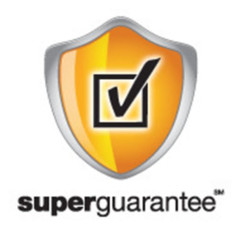Over on SEM Clubhouse this morning I posted an article about how online trust seals could increase conversions for local businesses. That proposition is not all that controversial, when you connect the dots. Lots of research finds support for the idea that trust seals increase consumer confidence for online retailers — and online retailers need this, since there’s often mistrust of the safety of making online purchases.
However, confidence is also needed in order to translate online traffic into offline customers. For local businesses, this is key. It is hard in some industries to tell if the online presence represents a real, actual business. As I touched upon in an article earlier this month, there are quite a few false business addresses cropping up in Google Places and elsewhere, and these undermine consumer confidence.
So, the logic seems fairly solid to believe that if you can increase consumer confidence in a website, by extension they may have a higher initial trust in the business itself. For businesses relying upon people visiting their premise, this could be key to improving referral rates from online sources.
Of course, the value proposition just may not be there. Many website certifications and trust seals may be costlier than their worth to offline businesses. This is why I suggested some lesser alternatives, such as making local chambers-of-commerce badges.
 The issue of trust is very key to getting a consumer to choose your business. This is why some local business marketing companies have created trust badges and guarantee programs. For instance, the Superpages.com SuperGuarantee program is one such, and for a while was considered to be a primary strategy for that internet yellow pages company, which has otherwise struggled with survival as consumers turn from print media to online resources such as Google Maps.
The issue of trust is very key to getting a consumer to choose your business. This is why some local business marketing companies have created trust badges and guarantee programs. For instance, the Superpages.com SuperGuarantee program is one such, and for a while was considered to be a primary strategy for that internet yellow pages company, which has otherwise struggled with survival as consumers turn from print media to online resources such as Google Maps.
The SuperGuarantee program was a fairly good idea. The concept of leveraging a trust mark and guarantee program is an overall good idea for internet yellow pages (even if the program was obviously very derivative and immitative of similar services offered by other companies, such as the ServiceMagic Guarantee, and even if it never quite lived up to being the “savior of yellow pages” it was virtually touted to being).
From a business’s perspective, it might be a good proposition, if you count it as mainly an advertising/promotional cost. Statistics indicate that very few consumers actually avail themselves of money-back guarantees in most cases. The question of whether the SuperGuarantee ever actually has achieved sufficient consumer recognition to be valuable to businesses is still up in the air. I’m not sure they have done enough promotion of the badge and service to reach critical mass with consumers.
However, I’d say that even with services that have lower overall consumer familiarity, merely having an independent service providing you with an endorsement could give you a leg up above similar competition which does not have any endorsement.
There are quite a number of industry-specific and product-specific rating services which might be valuable to display on your website. For instance, among attorneys the Super Lawyers rating might well be worth gold. Super Lawyers magazine names attorneys across the United States who receive highest point totals, as selected by their attorney peers and through independent research they conduct. The Rising Stars names each state’s top up-and-coming attorneys.
While the Super Lawyers guidelines won’t allow recipients to directly call themselves “Super Lawyers”, having the association with the Super Lawyers designation likely makes an immediate impression upon consumers. If you’re protecting your business or getting representation for an upcoming divorce, don’t you want to avail yourself of the cream-of-the-crop? Having such a badge would provide an immediate differentiator.
I first became aware of Super Lawyers a number of years ago, when I saw a special section for them in my Texas Monthly magazine.
The more controversial idea I floated in my article on trust seals is whether Google may be using or planning to use the presence of trust seals on websites as a ranking factor. I don’t have any stats as of yet which indicate for certain whether Google or other search engines could be using the trust badges for ranking.
However, I think they could easily factor in, because I think that Google is increasingly using some indicators such as the click-paths of users in determining whether webpages are relevant to search queries. Some metrics such as “Bounce Rate” may be factoring-in, and badges which are linked to related information pages on the certification service sites might well provide Google with indication that consumers are finding the presence of that info quite valuable on your website.
Tags: ranking factors, Search Engine Optimization, seo, super lawyers, Superpages, trust seals




 ShareThis
ShareThis